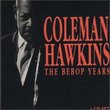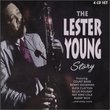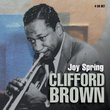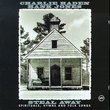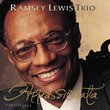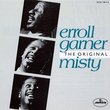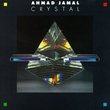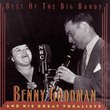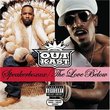| All Artists: Dexter Gordon Title: Settin' the Pace (Mini Lp Sleeve) Members Wishing: 0 Total Copies: 0 Label: Proper Box UK Original Release Date: 1/1/1943 Re-Release Date: 1/22/2001 Album Type: Box set, Import Genres: Jazz, Pop Style: Bebop Number of Discs: 4 SwapaCD Credits: 4 UPC: 604988991628 |
Search - Dexter Gordon :: Settin' the Pace (Mini Lp Sleeve)
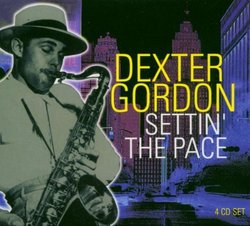 | Dexter Gordon Settin' the Pace (Mini Lp Sleeve) Genres: Jazz, Pop
55 tracks from 1943 to 1950...mostly be-bop with Dizzy Gillespie, Fats Navarro, Ben Webster, Billy Eckstine, Sonny Criss and more. Includes 44 page illustrated booklet. Four standard jewel cases with individual artwork, ho... more » |
Larger Image |
CD DetailsSynopsis
Album Description 55 tracks from 1943 to 1950...mostly be-bop with Dizzy Gillespie, Fats Navarro, Ben Webster, Billy Eckstine, Sonny Criss and more. Includes 44 page illustrated booklet. Four standard jewel cases with individual artwork, housed together in a deluxe slipcase. Similar CDs
Similarly Requested CDs
|
CD ReviewsAn essential collection of the first great bop tenor player Walter A Gross | Brooklyn, NY United States | 06/22/2002 (5 out of 5 stars) "As I parse through this collection I am amazed that Proper was able to compile such a complete collection surveying the early years of Dexter Gordon. It's all here, the historic Savoy sides that Dexter led between 1945 through 1947 which include a stellar cast of sidemen such as Bud Powell, Max Roach, Fats Navarro and Leo Parker. There is also the historic Dial sides w/ Wardell Gray and Teddy Edwards that produced tracks like "The Chase" (w/ Gray), and "The Duel" (w/ Edwards). A set containing the Savoy and Dial sides would be fantastic on it's own but Proper has also included a number of other tracks of Dexter featured with the Billy Eckstine Band, Dizzy Gillespie's Sextet, Red Norvo, and Benny Carter's band. Also included is the historic 9/4/45 date led by Sir Charles Thompson for the Apollo label that also featured Charlie Parker! And if that wasn't enough there are 5 lenghty tracks recorded on 7/6/47 at the Elk's Auditorium in Los Angeles and billed as the "Hollywood Jazz Concert". These tracks include Howard McGhee, Trummy Young, Sonny Criss, Wardell Gray, Hampton Hawes, and Barney Kessel and although the sound is not superb on the live tracks, the performances are excellent and give the listener an inside look at what the Central Avenue scene must have been like in the mid to late 1940s.All in all this collection is an excellent compilation of one of the true greats of modern jazz." The emergence of bop tenor nadav haber | jerusalem Israel | 01/22/2004 (5 out of 5 stars) "The kings of bop were Dizzy and Bird - on trumpet and alto, and there were Bud Powell, Monk, Kenny Clarke and Max Roach on piano and drums. It may be true that the tenor sax is just not suitable for bebop, just as the soprano sax is certainly not - but for other reasons. The tenor sound is just too big for the fast flurry of arpeggio notes, that is part of bop playing. Dexter Gordon was one tenor player who managed to excell playing bebop without loosing any of the sound qualities of his instrument. His deep and elastic sound was part of the great tenor tradition, yet perfectly modern. I am convinced that the evolution of Sonny Rolling, Joe Henderson and John Coltrane, could not have been what it was without the influence of Dexter's sound. It is interesting to compare Gordon with the great Wardell Gray, who is co featured on many tracks - especially the third cd. Gray's harmonic ideas were modern - but rhythmically he was part of the older tradition. These recordings, spanning an era between 1943 and 1950, are crucial to the development of bop tenor saxophone playing. They contain exciting live jam session recordings as well as studio recording, and great playing from all musicians involved - Fats Navarro, Gray, Teddy Edwards, Howard Mcgee, Leo parker, and of course Dexter Gordon himself. I recommend the four CD package to anyone interested in the tenor sax and in bebop." Your most revolutionary music comes young H. Walters | Tribeca, NYC | 08/03/2003 (4 out of 5 stars) "dexter had his share of problems -- drug arrests kept him out of circulation for 10 years, and he was celebrated for his comeback and his role in "'round midnight." but if you want his young, unvarnished, revolutionary sound, this is the place to go. young dexter is working through the fast, fresh changes of bebop on the tenor saxophone, at a pace that no one thought a horn deeper than an alto could handle. "long tall dexter" is a remake of charlie parker's "now's the time;" "i can't escape from you," is an uncommonly mature treatment of a ballad; "dexter digs in" -- all three takes -- is full of restless energy and power. for dexter, this is his armstrong's "hot fives," monk's blue note; bird's savoy and dial. it doesn't get 5 stars because i'm a tough grader."
|

 Track Listings (18) - Disc #1
Track Listings (18) - Disc #1